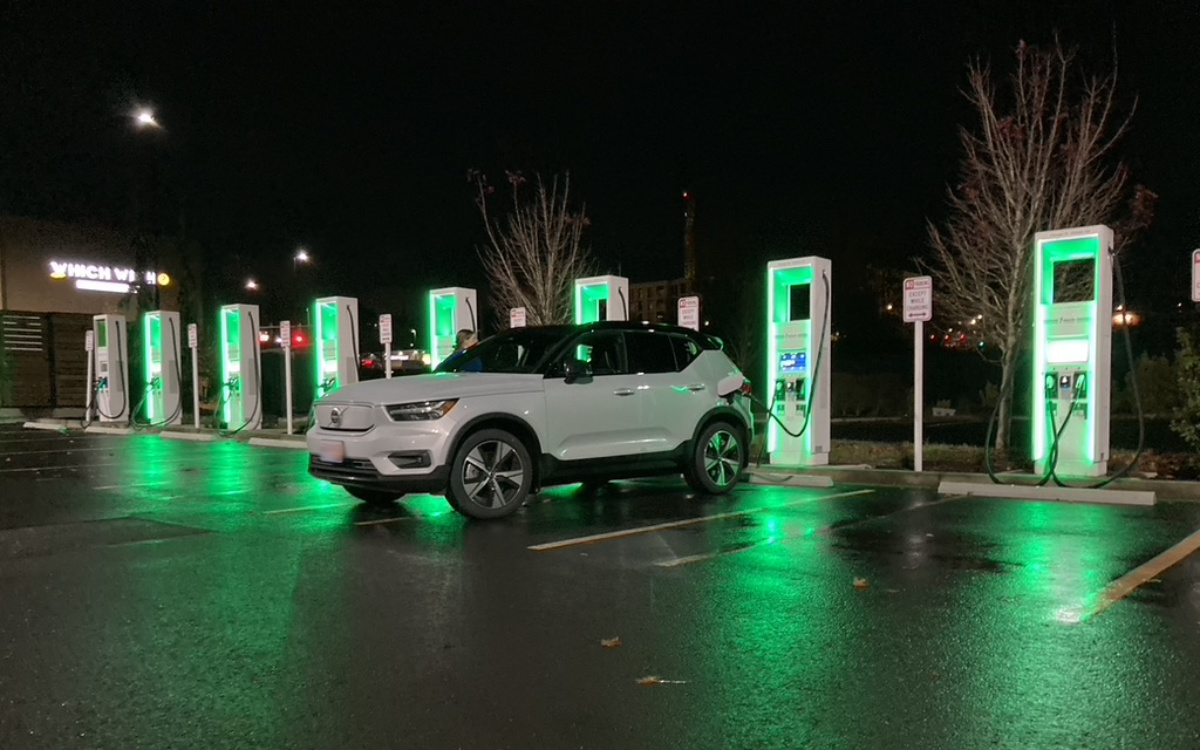There was a time when everyone knew everyone else in the electric vehicle industry. It was a small, tight-knit group who met in key cities across North America or Norway, where you could find a handful of booths at a tiny tradeshow. Back then, even someone with little knowledge was considered an expert, as it was almost a novelty to know anything about electric cars… when the market was limited to the Nissan Leaf, Tesla Model S, and the miniature Mitsubishi i-Miev for purchase in North America.
Fast forward 5 years and the EV industry has become the hottest thing on wall street, and it’s not gone unnoticed. Now, everyone is claiming to be an EV expert, building their credibility by sharing and commenting on articles written by others or commenting on the new EV model announcement by the OEMs.
After many conversations with our clients, it’s clear the hot, new spam e-mail topic has become – you guessed it – EV charging offerings. Now that transitioning to EVs has become such a trendy news subject, closely followed by Trump and the Mar-a-Lago classified documents, many real estate owners and managers are having a hard time filtering through all these new EV charging business models that seem too good to be true.
Today, anyone owning or having access to property or land can request an electric connection and provide power for transportation. The electrification of transportation mixed with the increase of renewable energy has created the decentralization of energy. Billions of dollars of investment are no longer a barrier to entry. This phenomenon also allows grassroots companies to pop up like mushrooms on your favourite golf course.
As a general rule, when something seems too good to be true, it often is. One thing that will quickly catch your eye is the fact that most of all new EV infrastructure offerings are looking for three specific things: The obvious free access to land and, in the fine print, owning the generated carbon credits and the data.
The general idea of this offering is to bait real estate companies into signing a 5-to-15-year agreement to install their own charging stations for free, level 2 or 3, while collecting and selling the carbon credits generated from the EV charging stations. Companies offering this service seem to have a compelling offer since it’s free to the landowner, but that’s before fully understanding the EV charging market and long-term potential. While no contracts are the same, the property owner might have to provide the electrical infrastructure to install level 2 charging units. Some companies even have an exclusivity agreement on the property, or within a determined radius, preventing the property owner from installing any equipment within the next 15 years. Even car manufacturers are getting into the EV charging market, chasing carbon credits and a marketing presence at any shopping malls, hotels, and other destinations that will match their target market. It’s gone mad!
With so many young companies formed by the current EV investment market hype, it’s easy to see that many of them will not survive using an unproven business model. Others will most likely do well through mergers and acquisitions by the capital markets. As seen with SPACs in the last couple of years, many people are starting companies to chase market shares by building an EV network and or by selling on the stock market as soon as they can. In some cases, this can turn into a risky, 15-year agreement for property owners as the market isn’t fully established. Without access to land or property, they can’t build a network, which is why the most valuable piece of the deal is real estate. Every time we get pitched by a company, I always ask: Do you or an executive drive electric? If not, the lack of industry knowledge and understanding is obvious.
Here are a few things to consider amongst many others:
- Who’s responsible for the charging stations if the EV company doesn’t survive?
- Who will pay to remove and replace the units?
- How will the site and charging stations be maintained?
- What type/brand/speed of charger(s) will be installed?
- Will it be a different electrical connection?
- Who is paying for demand charges?
- Who gets the carbon credits?
There are other approaches to consider installing EV charging stations on a property. Owning the equipment outright allows the property owner to collect fees, carbon credits, and data, control the maintenance, and most importantly, keep the flexibility to adhere to changes in the market in the future. This solution might not bring an ROI overnight but understanding that all vehicles sold in Canada and the US by 2035 must be electric, the market is bound to increase at lightning speed. Carefully evaluating all options is the best method as there is absolutely no rush to sign a long-term agreement without understanding the clauses and long-term consequences.
I’m not saying that these business models can’t be the right option for some landowners, however, with current government grants for EV charging stations, along with upcoming carbon credit programs, the value of data collection, and the flexibility of owning the charging infrastructure and benefiting from it, real estate managers should perform deep due diligence before signing any long-term agreements.
LeadingAhead Energy has helped many REITs, real estate developers, and other property managers to evaluate various EV charging infrastructure options, all of which have helped me acquire the knowledge to write on the topic. Our company also supplied, installed, and project-managed, over 600 units across Canada and the U.S.
Coming to a Junk Folder Near You: EV Charging Solutions



